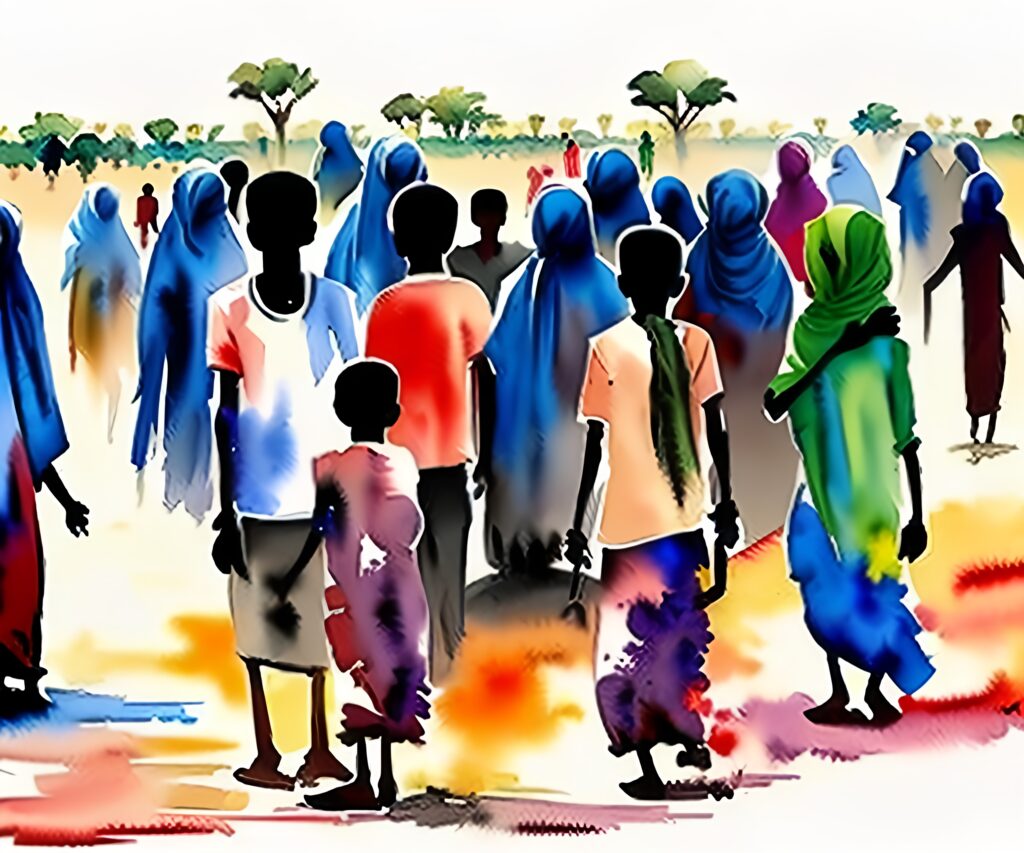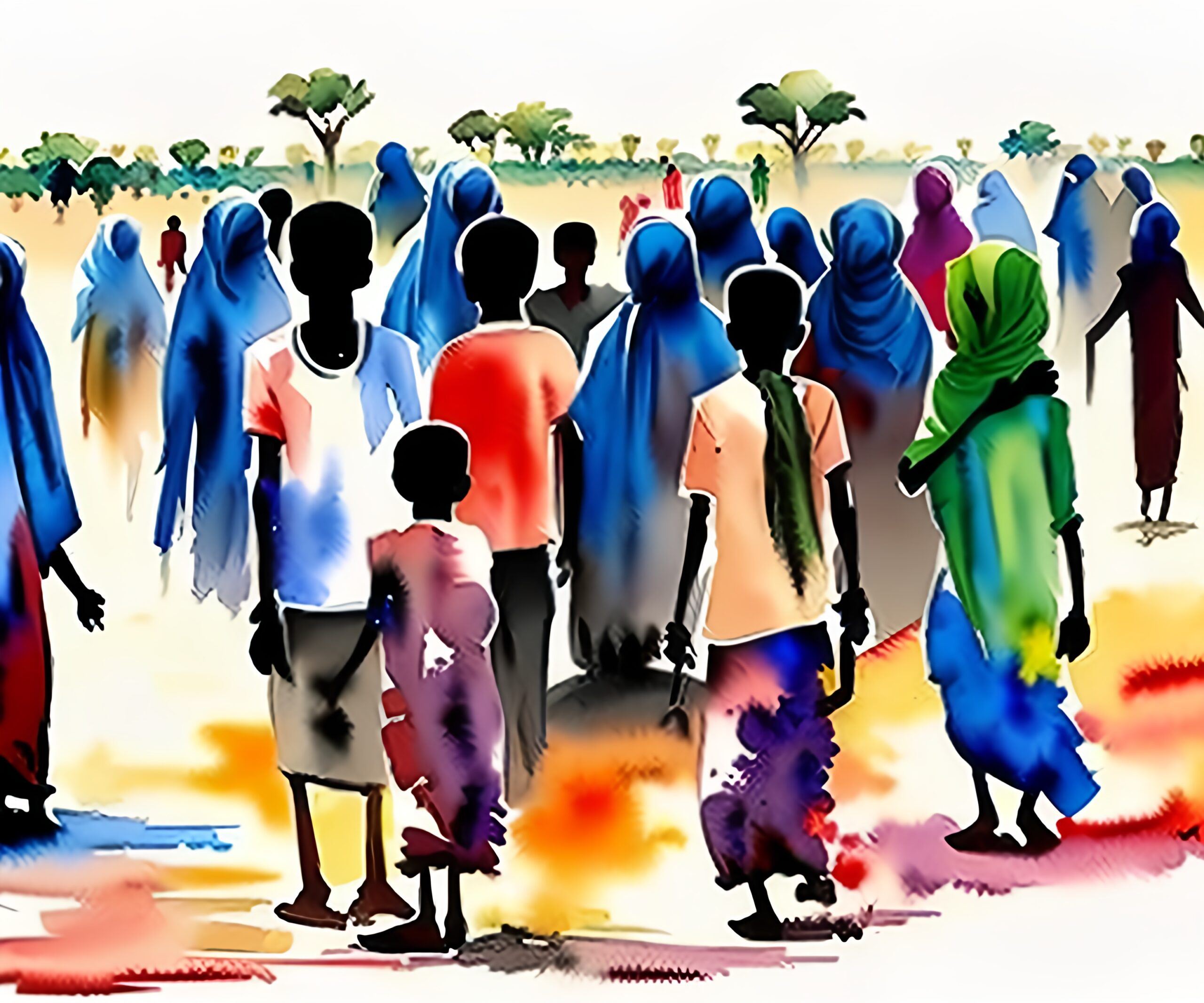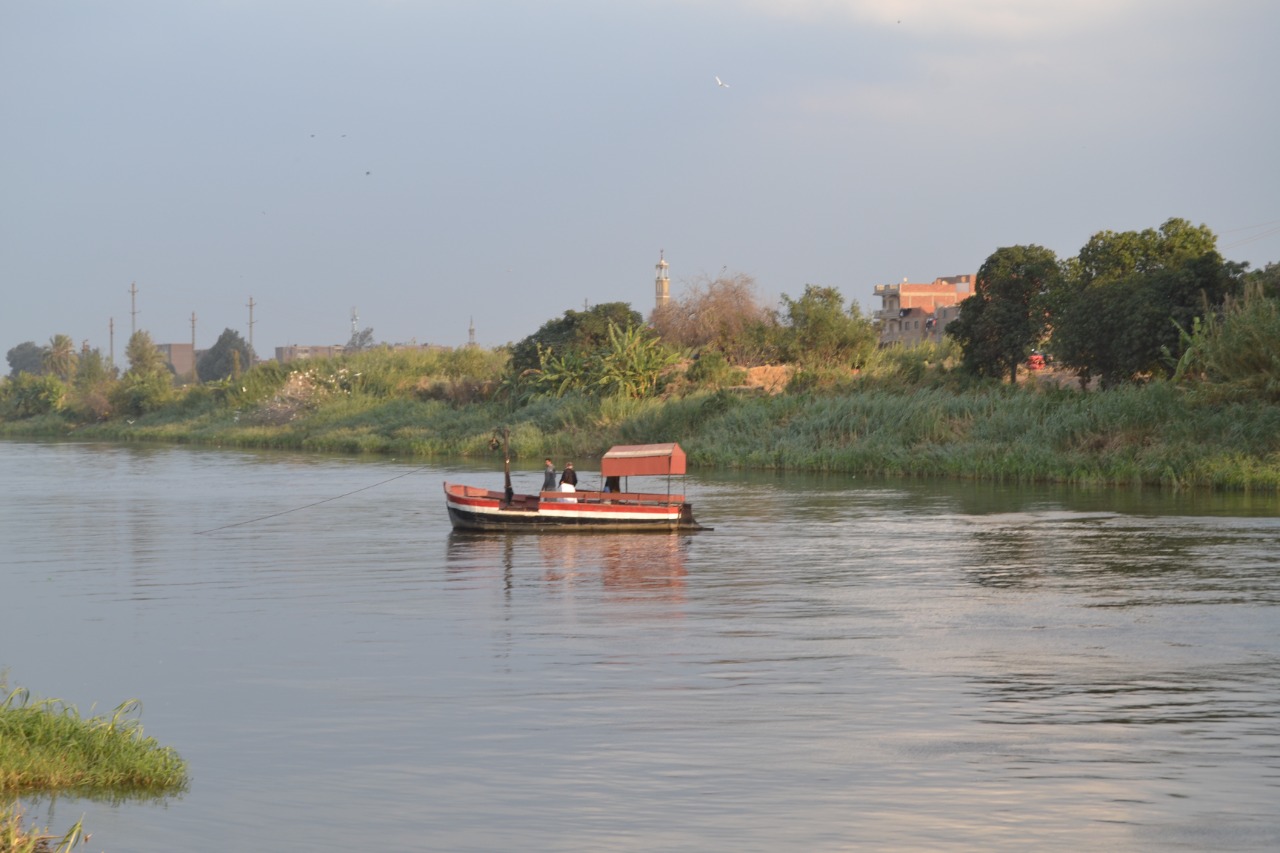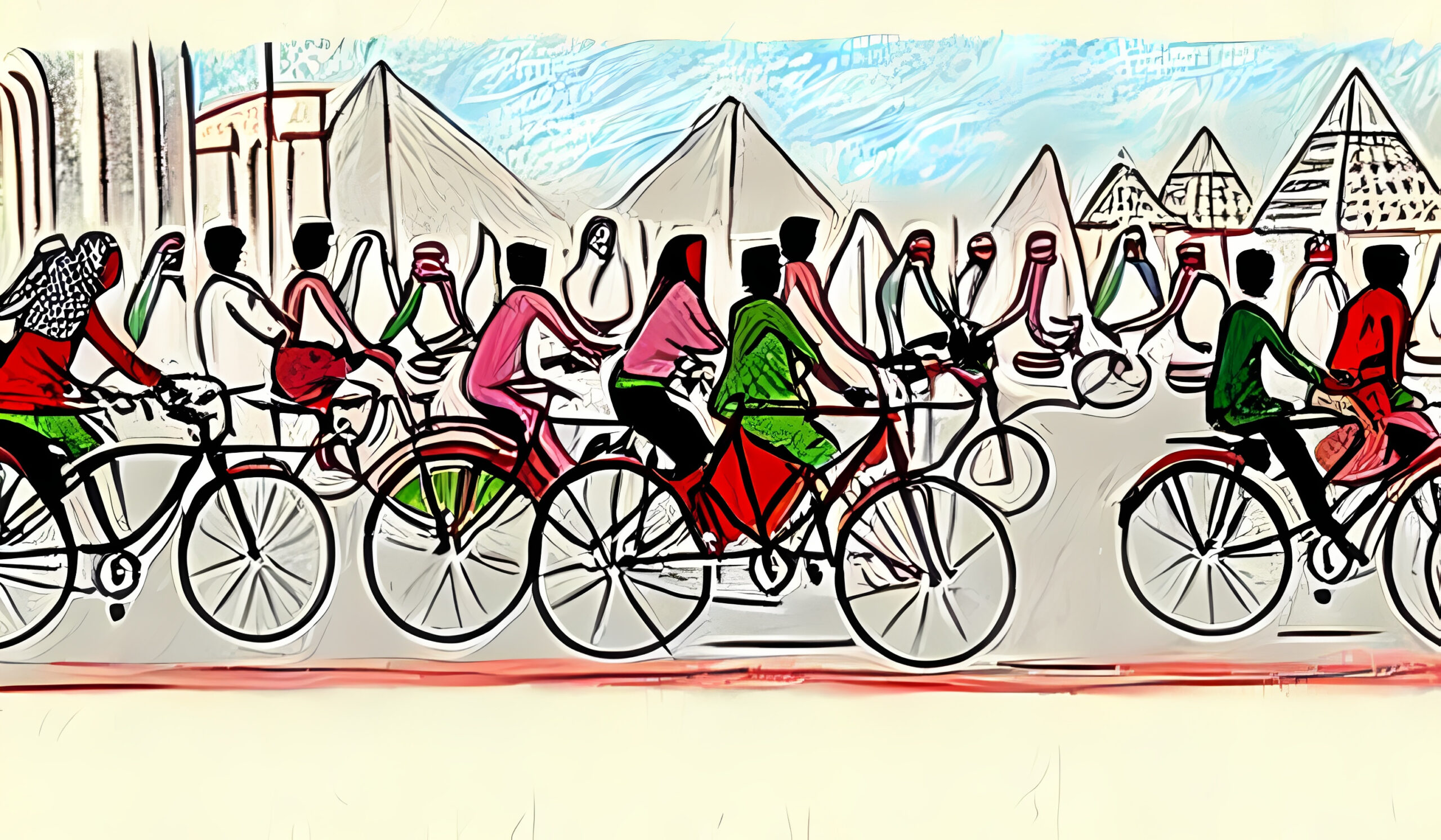Rabab Azzam
Mohamed takes his first steps towards the “Sufi” neighborhood near Opera Square in the Ataba area in the heart of Cairo, remembering that since he and his daughter arrived in Egypt, they haven’t found a place to live. He decides to head to the “Sufi” neighborhood, known as a commercial hub for Sudanese gatherings in the capital, hoping to find someone to help him get rid of the predicament caused by Egyptian property owners. Meanwhile, Khaloud (an Egyptian citizen) has been unable to rent an apartment suitable for living for a month, moving between small and cheap hotels in downtown and the neighborhoods of Maadi and Dokki, which adds to her living burden due to property owners exploiting the Sudanese crisis and doubling prices. The scene appears as if there is an escalating real estate chaos.
The ongoing issue of Sudanese displacement to Egypt through common border crossings (such as the Ashkit-Qustul and Arqin crossings) has sparked widespread debate about the potential impact on housing prices, as hundreds of thousands flee the ongoing war between the Rapid Support Forces and the Sudanese army. At a time when the economy is grappling with a rising annual core inflation rate, which jumped to 40.7 percent in July, according to the Central Bank of Egypt. The annual inflation rate in urban areas reached 25.8 percent in January, and the annual inflation of food prices in urban areas (usually inhabited by refugees) increased by 48 percent in the same month. This increases the number of Egyptians falling below the poverty line; according to the World Bank data, 60 percent of Egyptians are either poor or at risk of poverty.
One of the most noticeable effects has been the escalating increase in property rental values in some residential neighborhoods, such as Faisal, Haram, and October in Giza, as well as Maadi, Zahraa Maadi, Ain Shams, and East Nasr City in Cairo, and El-Qanater Al-Khairiya in Qalyubia, and Alexandria. Rental values/unit costs in some areas increased before the arrival of Sudanese refugees in mid-April last year, surpassing 30 percent compared to their value in March of this year, affected by the inflation rate and the depreciation of the local currency. According to Property Finder data, there has been a significant increase in rents in Egypt during the first quarter of 2023 compared to the same period last year. On average, rents have increased by 24 percent, with an increase of 22-30 percent in owned residential units. As a result, property owners in Egypt have capitalized on the influx of more than 300,000 Sudanese refugees since the outbreak of the war, adding to the over 5 million Sudanese residents in Egypt, according to the Egyptian Ministry of Foreign Affairs, which has driven up rental values. It seems that property owners are the only beneficiary group, while Egyptian renters have suffered, and the burden on Sudanese refugees has increased to the point of exploitation, in the absence of the state’s role in regulating these rental relationships.
Isaac, coming from Darfur, says he spoke to a Sudanese real estate broker residing in Cairo for years, who helped him find an apartment in East Nasr City. He adds, “I don’t have a problem so far in paying the rental value, which is $1,000, equivalent to 31,000 Egyptian pounds. I shared the apartment with two families, so we became 15 people sharing the rental cost among us.” He expressed his concern about the continued deterioration of the situation in Sudan and his desire to immediately start looking for work before his savings run out and he becomes homeless if the war continues for a longer time, especially since he and his family have not been able to access all their money in Sudan.
What is the specific scene?
According to real estate broker Mohsen Mahmoud, rental values have significantly increased by some landlords in the Faisal and Haram areas of Giza Governorate due to the growing demand from new Sudanese arrivals. For example, in the “El-Lebini” area, the rents for some furnished apartments have reached 20,000 Egyptian pounds per month (650 dollars), and in “Azbet Gabriel,” which represents an informal residential center, rental values have risen to 3,000 pounds (100 dollars) per unit. In contrast, rental values in the Agouza neighborhood ranged from 5,000 to 25,000 pounds (160-820 dollars).
Mohsen adds that he has received requests from Egyptian families willing to offer their own homes for furnished rentals, describing it as “a state of obsession that has begun to affect property owners, as they seek additional income to help them cope with the economic downturn. A one-month rent equals an average of five months’ salary.” It appears that there is a direct exploitation of the refugees’ housing needs, with no alternatives available to them.
The phenomenon of Sudanese real estate brokers has spread; many of them have found work that allows them to earn some money to help them settle. The refugees bring their relatives and acquaintances from Sudan and reach agreements with Egyptian brokers to provide housing, and they share the commission. This has become a thriving market, and it doesn’t stop at just renting units; Sudanese from the middle-class have started leaning towards owning suitable residential units. For example, 74 residential units were purchased by Sudanese in Nasr City alone in early May last year.
A sense of sympathy for the refugees has prevailed among Egyptians. However, there are voices calling for the government to regulate contracts to protect all parties involved. Ola, who rents a beauty salon in the Haram neighborhood, says she and her husband couldn’t find a new home that suits their salaries due to landlords preferring Sudanese tenants over Egyptians in recent months. Rental values for Egyptians have increased compared to before, stating, “I rented my apartment for 1,500 pounds (50 dollars), and now the owner is asking me to either increase it to 4,000 pounds monthly (130 dollars) or vacate it immediately at the beginning of next month without renewing the contract.” Meanwhile, Khaloud turned to cheap hotels to continue her stay in Cairo and faced several difficulties due to her desire to rent a home, questioning why there isn’t a committee to set rental prices and where the government’s market oversight is to protect Egyptian or foreign consumers.
Here, human rights lawyer Mohsen Bahnasy responds, saying that the real estate market is a market of supply and demand, and under the pressure of need, newcomers accept the high rental values in some areas, while other areas have not seen rent increases. He explained, “In the past, there were committees to determine rental prices according to Law 49 of 1977 and Law 136 of 1981, under which the relationship between the landlord and the tenant was defined, and either party could resort to the court in case of a dispute to appoint a committee of experts to determine the rental value. This situation continued until the issuance of Law 4 of 1994, which introduced the principle of contract as the law of the contractors and liberated the relationship between the owner and the tenant, giving the owner the freedom to determine the rental period and value as they see fit. This is where the exploitation of Sudanese refugees in their recent crisis specifically comes into play, and I believe that the state is moving in this direction despite its ability to issue regulations to regulate these relationships and protect both refugees and Egyptians alike.”
Violations and Difficulties
“Baraka” chose to seek refuge in Egypt despite her separation from her husband, who has not yet been able to enter through the land border due to the complexity of the procedures and congestion during the early days of the war. However, she sees Egypt as a suitable destination for migration for various reasons, including its proximity to Sudan, shared culture, customs, traditions, as well as the facilitations provided by the Egyptian government to refugees at the beginning of the crisis. But she also encounters some violations on the Egyptian streets, such as mockery of her appearance and difficulty in finding work with her university degree. She ended up working as a domestic helper for a salary that is not sufficient for her to rent a home. She has also faced verbal harassment and harassment on multiple occasions and has no way to file a legal complaint for fear of deportation. She has attempted to register herself with the refugee commission but is still waiting for the interview.
According to the UNHCR Egypt, there has been an increasing influx of Sudanese arrivals to Egypt seeking registration. In July 2023, the number of those already registered reached 7,336 families (15,617 individuals). The commission is responsible for registration, protection, reception, and support for refugees and asylum seekers, including housing and other urgent services. Refugees often find it difficult to afford accommodation and living costs, so they turn to the commission, which, in turn, is dealing with a backlog of applications, resulting in longer waiting periods for registration, which can average 66 days. This contributes to the economic challenges faced by refugees, especially those heavily reliant on humanitarian assistance, living in crowded neighborhoods in poor cities, mainly in Alexandria, Cairo, Giza, Qalyubia, and the eastern governorates. The cost of living and legal barriers preventing access to formal employment exacerbate the situation for many refugees.
In response, Nor Khaleel, the Executive Director of the Refugee Platform in Egypt, confirms that new displaced Sudanese refugees, especially women and children, are facing a major housing crisis with skyrocketing prices. He points out that it’s essential to distinguish between several problems faced by refugees:
The first problem is finding a safe housing unit that provides privacy and security, especially for women. In Egypt, areas meeting these criteria usually have high prices under normal circumstances. During displacement and increased demand, prices escalate further, forcing many women to seek accommodation in places that may not be safe for them or share housing with others.
The second problem is the price hikes caused by many displaced individuals choosing the same areas and destinations where they can find a Sudanese community to integrate with or be closer to their relatives. This high demand drives some property owners to increase their prices.
He adds, “Price hikes affect both refugees and migrants from the same nationalities living in these areas, as well as Egyptians. As a result, some families share the same housing unit and split the rent.”
Khaleel attributes Sudanese individuals’ acceptance of exploitation to the belief that many of them will return to their country soon. This leads them to spend most of their savings in the first few months, which may leave them struggling to pay their dues later when job opportunities are scarce. Obtaining a work permit to cover basic living expenses is also challenging. Several similar cases have been reported to the “Refugee Platform,” and the organization assists them by referring and guiding them to refugee and migrant support groups, associations, and organizations to provide temporary solutions at times.
Many refugees also face stubbornness from landlords and a lack of commitment to signing official lease contracts, allowing them to be evicted at any time. There are no official channels for refugees to lodge complaints unless they have registered with the United Nations High Commissioner for Refugees (UNHCR).
The Executive Director of the Refugee Platform primarily holds the state responsible for regulating exploitation processes and providing legal pathways for litigation and complaints. He believes that this is crucial for organizing the presence of foreigners within the country. The responsibility also falls on the state regarding the organization of housing for displaced persons, especially considering that the Egyptian government has received funding from the European Union for responding to the displacement from Sudan. On the other hand, refugees face challenges in dealing with the UNHCR, starting from scheduling registration appointments to requesting protection or assistance and determining the amount of support provided.
Should we wait for a solution from the authorities to control property prices, or will property owners abandon their desire to collect more money at the expense of refugees? Will decisions be issued to regulate rental relationships between all parties, or will the state relinquish its role in protecting refugees and citizens from this overwhelming housing crisis?







